"Funding" Your Trust
If you have a living trust, congratulations! You are on the right track to avoiding probate, while providing an orderly disposition of your estate according to your wishes. But a trust is “empty” and will not avoid probate if it is not “funded.” Simply, what “funding” means is that the trust obtains legal title to your property. In other words, you transfer title from you as an individual to you as trustee of your trust. Having an unfunded trust is analogous to having a bank account with no money in it. You may have checks sitting on your desk that you intend to deposit into your bank account, but they are not in your account until you actually do so. Similarly, merely listing those assets you intend to hold in your trust (typically, this is done on Schedule “A” attached to your trust) does not suffice. This is only a declaration of intent and does not constitute funding the trust.
Most importantly, you must retitle your real estate. This can be done by executing Trust Transfer Deeds, Quitclaim Deeds, or Grant Deeds that transfer your real property from you as an individual to you as trustee of your trust. These deeds must be recorded with the County Recorder’s offices in the counties where each piece of real estate is located. While there is a nominal recording fee for each deed, there will be no reassessment of your real estate for tax purposes, as a transfer into a living revocable trust is not deemed a “change in ownership.” Nor will there be any documentary transfer tax, as this transfer is not deemed a “sale.”
Moreover, you should change the vesting on all bank accounts, Certificates of Deposit, stocks, bonds, and brokerage accounts going into the trust. For bank accounts, this will require you to sign new signature cards as trustee of your trust. Note that some banks and brokerage firms have their own Certification of Trust form that you must complete for transferring title to your trust, and if stocks are involved with your brokerage account, you will likely be asked to get a Medallion Guarantee of your signature.
Tangible personal property without written title can be transferred to the trust by simply executing an assignment frequently called a “Transfer of Personal Effects.” This will give the trustee of your trust the authority to distribute all personal assets according to your written wishes.
Do not forget about “intangible” property rights when funding your trust. For example, if you are the owner of a copyright or patent or are entitled to royalties under any other type of contract, such property rights can be quite valuable and should be assigned to the trust. Similarly, business interests under partnerships, LLCs, or other entities should be assigned to the trust.
Some people desire to retitle their vehicles and vessels into the trust. This is not necessary for most vehicles due to their minimal value. If you choose to retitle your vehicle ownership, simply endorse your pink slip and indicate that this transfer is a “gift” to you as trustee of your trust. Mail the pink slip to the DMV with the proper fee, and you will receive a new pink slip changing title to you as trustee of your trust. If you choose not to retitle your vehicle or vessel, upon your death, your trustee will complete an “Affidavit for Transfer Without Probate” available from the DMV to transfer title to any California-titled vehicle or vessel.
It is not advisable that you transfer qualified accounts to your trust, or you could experience serious tax consequences. These accounts should have named beneficiaries who will take directly from that account upon your death without the necessity of probate. While it is permissible and sometimes desirable to name the trust as beneficiary of such accounts, it is not always advisable due to tax and other financial consequences. Therefore, it is important that you consult with your financial planner or CPA to discuss the advisability of such action.
Similarly, the ownership of life insurance policies and annuities does not need to be retitled into the trust, as these policies also have named beneficiaries and will pass outside of probate. Unlike qualified accounts, however, you can freely name the trust as primary or contingent beneficiary of these policies. If you wish to change the beneficiaries of your life insurance policies or annuities, request a Change of Beneficiary form from your life insurance carrier.
To summarize, having a living trust prepared is an important first step to avoiding the costs and time delays that would result if your estate were subjected to the probate process. Properly funding your trust is an important second step to ensure that your estate will, in fact, avoid probate.*
*The information contained herein is not to be construed as "legal advice." If legal advice is required, you should seek the services of a competent estate planning attorney.














